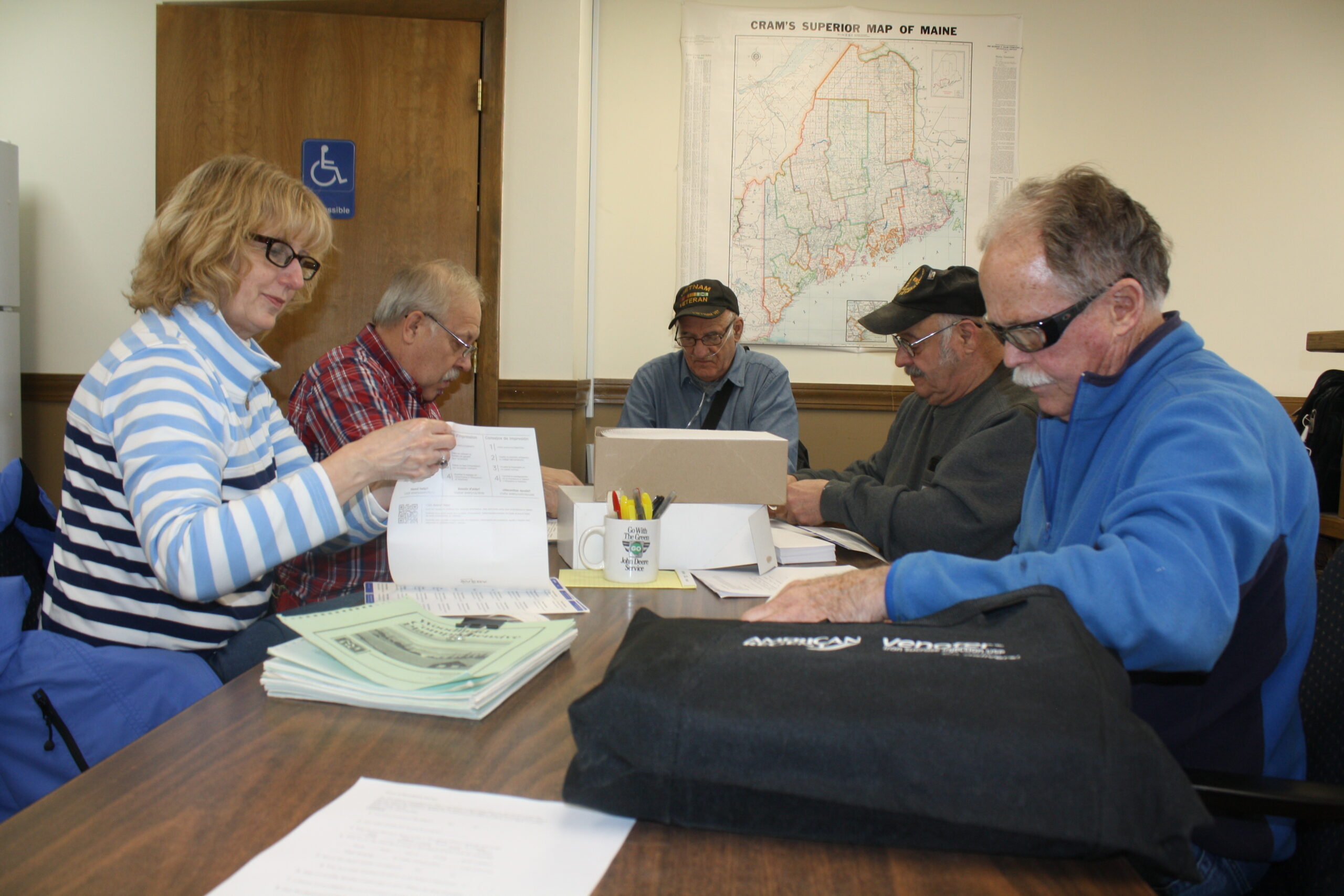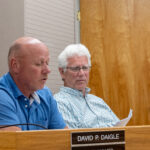
WOODLAND, Maine – In 1997, Woodland adopted a comprehensive plan for implementing townwide zoning regulations, advancing housing opportunities and other areas of community life.
But none of that plan’s goals ever came to fruition. Now, a citizen group has taken action to help the town move forward in the wake of dysfunction that often halted local government.
Woodland residents did not have it easy in 2023. Starting in March, their town office closed for two months after both clerks quit. Two new employees came on in May and reopened the office. But conflicts between Select Board members led to resignations on the board and conflicts that canceled several meetings last fall. The turmoil left many residents distrustful of their elected officials and delayed one group’s efforts to form a committee for updating the town’s comprehensive plan.
That group of eight volunteer citizens has since gotten the green light from the Select Board and have met six times since late fall 2023. Led by resident David Hall, the comprehensive plan committee wants to get residents’ feedback on town issues and then explore new goals, which could include townwide zoning, building a new community center and better promoting recreational trails.
Though the comprehensive plan won’t address issues specific to town government, committee members hope that the plan promotes more unity and direction.
“If you don’t move forward, you’re only going to move backwards,” said committee member Bill Thomas.
The state’s Municipal Planning Assistance Program encourages municipalities to update their 10-year comprehensive plans, or create a plan if one doesn’t already exist. For towns who send their plans in for state review, program staff certify the plans as consistent with the Maine Growth Management Act. That designation often qualifies towns for state and federal infrastructure and economic development grants.
It’s common for rural municipalities near Woodland’s size to go years, even decades, without updating or creating a comprehensive plan, said Tom Miragliuolo, a senior planner with Maine’s Municipal Planning Assistance Program.
Woodland’s population was 1,217 as of the 2020 U.S. Census. Many towns that size or smaller do not have the financial means to pay a consultant to assist with drafting the plan and face a lack of community volunteers, Miragliuolo noted.
Though state law does not require that towns create or update comprehensive plans, many that do will often tailor plans to specific local goals, Miragliuolo said.
“Typically, residents have a vision of what they want the next 10 to 20 years to look like,” Miragliuolo said. “Every town has their own reason [for creating a plan]. One might do it for zoning purposes, another might want to get grants.”
In Woodland’s case, the comprehensive plan committee members would like to address the lack of townwide zoning, especially if residents view that as a roadblock to successful development.
At least two thirds of Maine towns do not have townwide zoning regulations, except for those mandated by state law, such as shoreland zoning, Miragliuolo said. But comprehensive plans are a chance for communities to reconsider their zoning.
In 1997, Woodland’s comprehensive plan recommended that Woodland designate “growth areas” for residential, commercial, industrial and/or agricultural to potentially increase growth without losing the town’s rural qualities.
The committee at that time proposed creating the following zoning districts: Village, Rural Residential-Farming, Trails Overlay, Resource Management and Historic-Cultural Overlay. Currently, Woodland’s only land use regulations are its building ordinance, shoreland zoning and floodplain management ordinances.
But residents have continually voted against proposals for townwide zoning, Hall said, a move that he thinks has deterred housing development.
For example, the town’s current building ordinance, enacted in 1988, states that all lots within town cannot be smaller than one acre. That and Woodland’s lack of a public water and sewer system could create problems if someone buys property that they wish to use as a seasonal campsite, Hall said.
“[We could consider] opening up the back lots [of town properties] for seasonal dwellings,” Hall said. “Let’s say you grew up in the area and would like to spend summers here. You can’t if you don’t have enough land for building.”
Hall and his committee have mailed 500 surveys to Woodland residents, asking for their views on zoning, roads, public transportation and other issues, such as whether a community center and recreation committee would benefit the town.
The town has traditionally held Select Board meetings and elections at Woodland Consolidated School, but was forced to use the town garage when the school restricted visitors during COVID. A new community center might help the town avoid conflicts with school events and give residents their own space to gather, said Ted St. Pierre, a comprehensive plan committee member.
A community center could also be the headquarters of a new recreation committee, something Woodland has never had. With the town being a major snowmobile trail connector and boasting over three miles of hiking trails, its recreational opportunities deserve more promotion, St. Pierre said.
The committee hopes to finalize the town’s goals in the coming months, as they gain more feedback from residents, then submit a draft comprehensive plan to the Select Board by this summer.
Woodland might not be legally bound to that document, but committee members are hoping that residents and leaders enact more serious changes in the next decade.
“The community is who the town is. We don’t want only two people in town to control everything,” Hall said. “This [plan] is important for the town to move forward.”
This story was updated to correct the byline to Melissa Lizotte.







